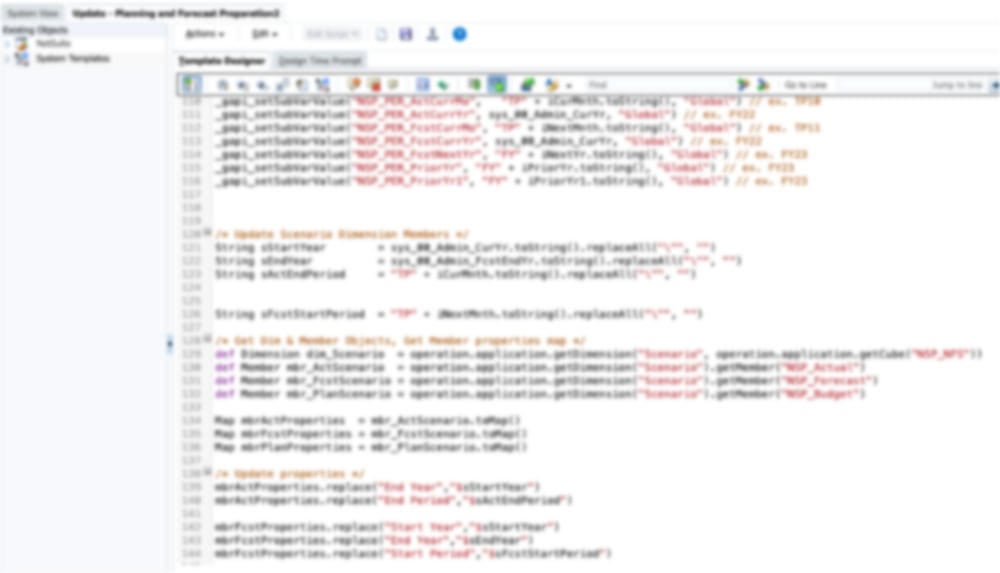Enterprise Performance Management (EPM) solutions, whether deployed via Oracle’s Enterprise Planning and Budgeting Cloud Service (EPBCS) or NetSuite Planning and Budgeting (NSPB), often involve complex planning models. While these models are powerful, they can also introduce performance bottlenecks that traditional business rules or out-of-the-box tools struggle to resolve. These bottlenecks can lead to suboptimal design choices, an inability to solve critical business problems, and frustratingly long wait times for users.
The Hybrid EPM Challenge
Hybrid enabled EPM solutions offer a lot of benefits especially with data aggregations. Performance challenges typically arise due to:
- Large Data Sets: The need to process high volumes of data across multiple dimensions.
- Complex Business Logic: Rules requiring multi-step calculations that slow down performance.
- System Constraints: Limitations in standard calculation scripts that struggle with real-time data processing.

Why Groovy?
Groovy scripting provides a flexible and efficient way to optimize calculations and data movement in hybrid EPM environments. Unlike traditional business rules, Groovy enables:
- Dynamic Execution: Scripted logic that adjusts dynamically to data changes, reducing unnecessary processing.
- Selective Data Processing: Filtering and executing calculations only on relevant data points instead of full dataset recalculations.
- Parallel Processing: Improving performance by running logic in parallel where applicable.
- API-Based Interactions: Seamlessly integrating with cloud and on-premises data sources to enhance performance.
- Rapid Data Extraction, Mapping, and Reloading: Using Groovy, we can efficiently extract data, apply business logic or mapping transformations, and reload it into the same or another cube/plan type with minimal processing time.
Practical Groovy Applications for Hybrid EPM
- Optimizing Calculation Scope
- Instead of recalculating all data, use Groovy to evaluate and process only the impacted data points. This significantly reduces runtime.
- Efficient Data Validations
- Implement Groovy scripts to validate data on entry, reducing errors and unnecessary processing downstream.
- On-Demand Data Push and Pull
- Use Groovy APIs to selectively push or pull data between hybrid environments, reducing unnecessary data transfers.
- Performance Logging and Monitoring
- Leverage Groovy to track execution times and identify bottlenecks dynamically, allowing for targeted optimizations.
Leverage Promethean Analytics’ Expertise
At Promethean Analytics, we have extensive expertise in optimizing hybrid EPM solutions using Groovy. Our library of prebuilt Groovy code accelerates implementation and ensures best practices are followed, helping businesses unlock faster performance and greater efficiency in their planning processes.
When facing performance issues in hybrid EPM implementations, relying solely on traditional business rules can lead to inefficiencies. Groovy scripting provides a more adaptive, efficient, and scalable approach to solving performance bottlenecks. By implementing targeted Groovy solutions, businesses can optimize their EPM environments to deliver faster calculations, better user experiences, and enhanced decision-making capabilities. Promethean Analytics is here to help you make the most of Groovy for your EPM needs.